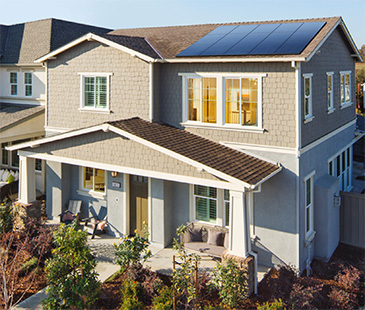Do Solar Panels Work on Cloudy Days
Clouds gather. The sky grows dark. A solar homeowner may naturally wonder: how much energy can my solar system generate during cloudy days? What about rainy days? Will my solar system still produce solar energy in overcast conditions? And what about evening—how do solar panels work at night?
While of course solar panels need sunlight to produce energy, it's important to learn how cloudy conditions can affect the efficiency of solar energy generation and how factors such as partial shade and tree cover can impact your solar system power output.
In short, solar panels still work in cloudy weather. They just might generate less power, depending on the quality and efficiency of your panels.
Does a cloudy day affect solar energy generation?
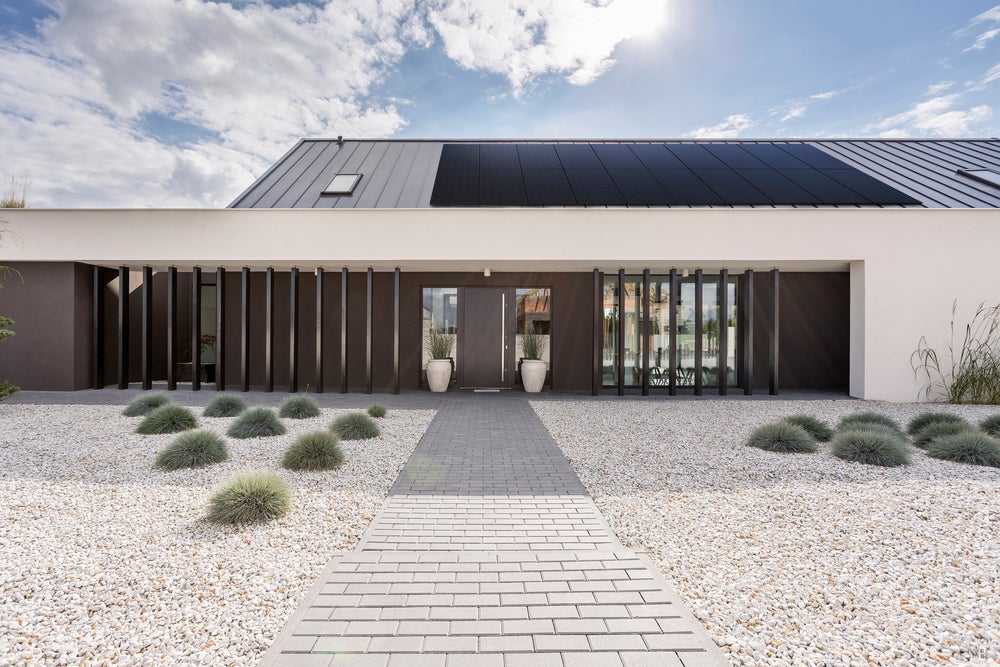
Anyone who’s gotten sunburned on a cloudy day knows that solar radiation penetrates clouds. For that same reason, solar panels can still produce electricity on cloudy days. But depending on the cloud cover and the quality of the solar panels, efficiency can drop to anywhere from 10 to 25 percent of the energy output seen on a sunny day.
Which solar panels work best in cloudy conditions?
High efficiency panels make more energy than conventional panels on a cloudy day, making them an excellent fit for cloudy climates or if trees partially shade your roof during certain times of day. But don’t forget about the cells themselves. Some solar cells capture a broader range of UV light (for example, red and blue wavelengths) which contribute to higher energy production in various weather conditions.
Some cells (including those used by SunPower) incorporate a "backside mirror." This thin layer of aluminum bounces some of the light photons that are not absorbed on their first pass through a cell back into the cell to have a second chance for absorption. This results in greater output of electrons from the same input of light.
Don’t solar panels need direct sunlight to generate electricity?
Solar PV panels work by converting solar radiation to direct current (DC) and then an inverter turns that into alternating current (AC), which is the type of power most houses run on.
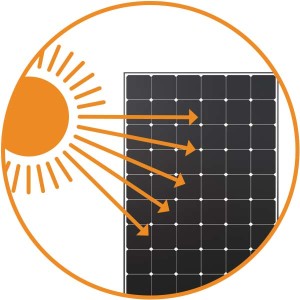
Sunlight
When sunlight hits a solar panel. photons (particles of energy) are converted into electrons.
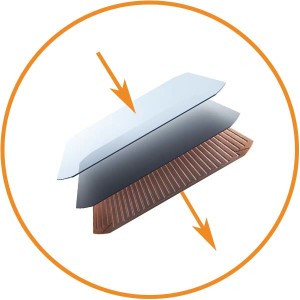
Solar Cell
As Electrons pass through the cells of a solar panel, they're converted into direct current (DC) electricity.
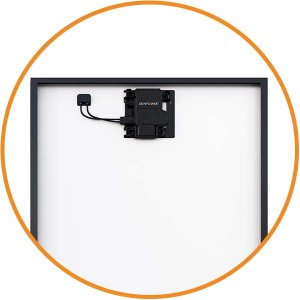
Inverter
That electricity is sent to an inverter which converts it into alternating current (AC) power.
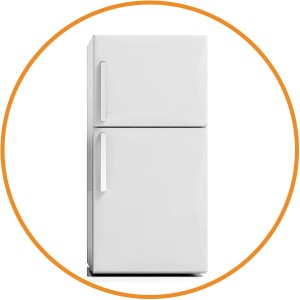
Home Appliances
That AC power runs through your home ready to power appliances charge devices and more.
If your solar system produces far more electricity than you need, that AC power then goes back to the grid to be used by the utility, which in many areas offers the homeowner a credit via net metering.
Net metering policies, which vary by state, generally give you credit for excess power you produce, and you can draw on that credit at night or when your system produces less due to cloudy weather.
3 Key questions answered about solar panels and cloudy weather
Here are 3 important things to remember:
Can solar power work well in typically cloudy, cold locations?
These cities are some of the cloudiest in the US
New York
San Francisco
Milwaukee
Boston
Seattle
All of those cities can experience quite inclement weather, from rain and fog to blizzards, yet all of them top the list of U.S. cities that see the highest level of savings thanks to solar installations.*Top 10 Cities for Solar (Hint: They Aren’t the Sunniest, Energy Sage, Sept 2021) The cost of electricity, not the number of cloudy or cold days, is the biggest factor in determining whether solar saves people money on their electric bill. In New York and San Francisco, for example, the high cost of electricity makes solar installation worth the investment for home and business owners.
Does the heat or cold affect solar panels?
Solar doesn't need hot weather to generate electricity. Solar panels actually work best in places that are sunny and cold. When panels get above about 77 degrees Fahrenheit, they tend to work less efficiently. That doesn't mean they won't work in traditionally hot places such as Phoenix (which is No. 6 on the list of cities with the greatest solar savings). Again, electricity costs, not the weather, play a bigger role in how solar systems save homeowners money.
Will solar panels work in the shade?
While partial shading, whether it be from natural or other sources, can decrease the amount of solar energy your system is generating, solar systems are engineered to prevent the effects of shading from causing all energy production to stop. How much, depends on the individual solar technology, particularly microinverters.
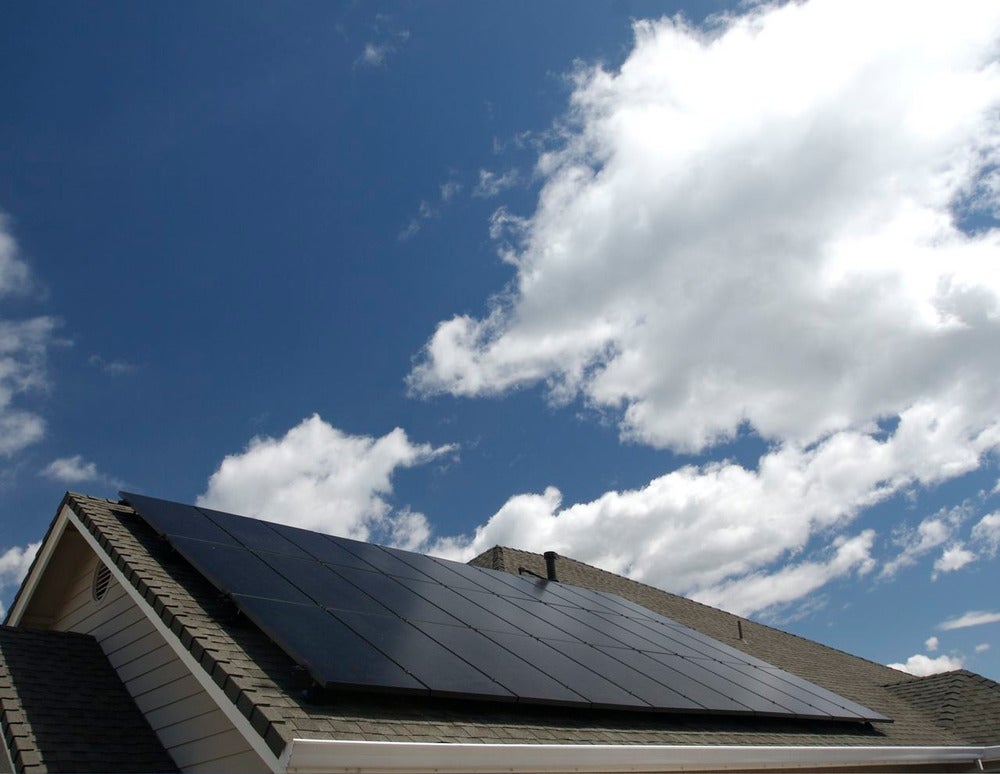
With central inverters, all the wires leading to the inverter usually connect the panels together, like lights on a Christmas tree. But just like lights on a Christmas tree, that set-up can go awry thanks to one small problem.
Say there are 24 panels on a roof. If shade covers just one of those panels for a couple of hours a day, the entire string of panels will underperform for those two hours. Though the other panels are producing maximum power, the problems of the one shaded panel will keep much of their energy from passing through the central inverter.
High quality solar systems have microinverters under each panel. Each panel is independent, so if shade hits one panel for a couple of hours, then only that one panel is affected. As a result, much more power gets into the home. If, say, 20 percent of the solar panels are shaded by a tree limb, only 20 percent of the system's energy production is temporarily diminished, but no more. Again, qualified installers know how to design your system so shading issues won't be a problem. That's why it's important to work with a qualified solar panel installer.
Ensure your solar provider uses qualified and/or local solar installers. Every jurisdiction has its own rules, guidelines and incentives, in addition to specific climate and geographic considerations. Locally based businesses with expertise in your community's weather and installation rules and regulations will have the best sources of knowledge on how solar will work on your home. It doesn't hurt to keep in mind that Germany, a leader in renewable energy that has on average over 200 partially cloudy or cloudy days a year, accounts for about 25 percent of the world's solar power output and achieved its strongest growth in half a decade last year. That's good evidence that going solar is about saving on energy costs and helping the planet, not the sunny weather.
Do solar panels work at night?
Technically, no. Solar panels and cells must have direct sunlight to generate electricity. But that’s not the entire story. Complete home solar solutions offer two key benefits that affect nighttime energy use: backup battery storage and net metering.
While the solar panels themselves work hard all day producing electricity from the sun, adding a battery storage solution like SunVault storage lets you access stored solar energy at night, and during power outages, further reducing your reliance on the grid.
As mentioned earlier, net metering offers similar benefits. It won’t help you access power in a grid outage, but it can help you offset the cost of using grid energy at night (and other times of low solar production).
Do solar panels also lose efficiency when it rains?
Just like normal cloud cover, ultraviolet rays still make their way through rain as well. However, because the sunlight is limited, so is production. The amount of electricity generated is dependent on the density of cloud coverage, so your system’s production will be inconsistent and generally reduced on those gloomy days.
Though energy production decreases as rain and cloud cover increases, solar panels continue generating more energy than you might expect. Rain also helps wash away dust and debris, keeping your panels clean and operating at maximum efficiency from season to season.
Does fog affect solar panel efficiency?
Similar to cloud cover, fog and other lowlight condition affect solar production, but the panels are still able to capture some of the sun’s energy. It’s estimated that most solar panels operate at about 50% of their normal efficiency during foggy conditions, vastly superior to really dense cloud cover or overcast conditions. And again, SunPower panels outshine the competition in lowlight energy production.
Additionally, fog typically burns off throughout day (typically in the morning), so by mid-afternoon, if sun returns, solar panel efficiency should return to normal levels.
The bottom line on solar panels and weather, clouds and rain:
A cloudy day, a cloudy location, or rainy weather shouldn't darken anyone's view toward considering switching to solar power for both energy savings and sustainability.

